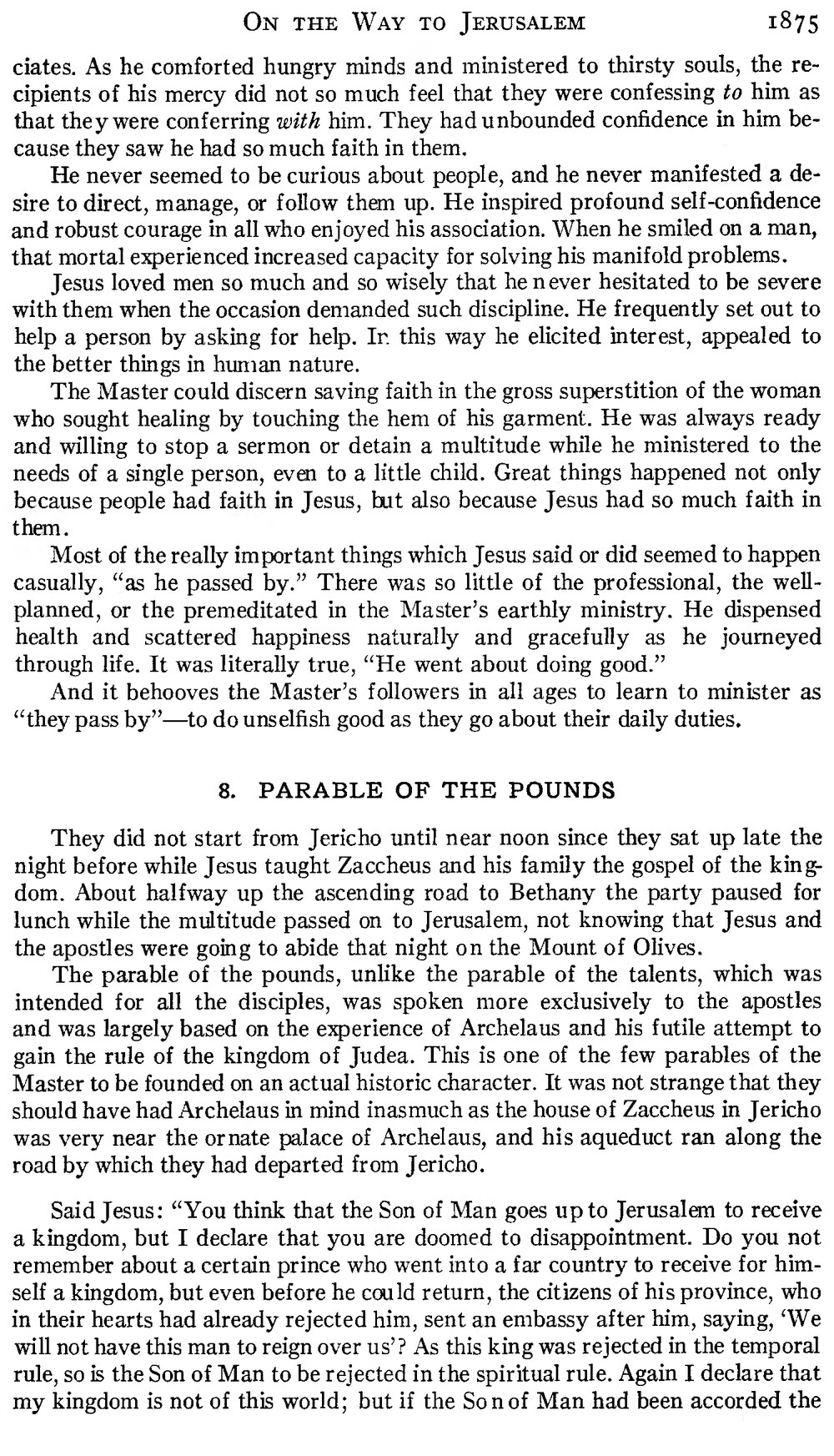ciates. As he comforted hungry minds and ministered to thirsty souls, the recipients of his mercy did not so much feel that they were confessing to him as that they were conferring with him. They had unbounded confidence in him because they saw he had so much faith in them.
He never seemed to be curious about people, and he never manifested a desire to direct, manage, or follow them up. He inspired profound self-confidence and robust courage in all who enjoyed his association. When he smiled on a man, that mortal experienced increased capacity for solving his manifold problems.
Jesus loved men so much and so wisely that he never hesitated to be severe with them when the occasion demanded such discipline. He frequently set out to help a person by asking for help. In this way he elicited interest, appealed to the better things in human nature.
The Master could discern saving faith in the gross superstition of the woman who sought healing by touching the hem of his garment. He was always ready and willing to stop a sermon or detain a multitude while he ministered to the needs of a single person, even to a little child. Great things happened not only running headerbecause people had faith in Jesus, but also because Jesus had so much faith in them.
Most of the really important things which Jesus said or did seemed to happen casually, "as he passed by." There was so little of the professional, the well-planned, or the premeditated in the Master's earthly ministry. He dispensed health and scattered happiness naturally and gracefully as he journeyed through life. It was literally true, "He went about doing good."
And it behooves the Master's followers in all ages to learn to minister as "they pass by"—to do unselfish good as they go about their daily duties.
They did not start from Jericho until near noon since they sat up late the night before while Jesus taught Zaccheus and his family the gospel of the kingdom, About halfway up the ascending road to Bethany the party paused for lunch while the multitude passed on to Jerusalem, not knowing that Jesus and the apostles were going to abide that night on the Mount of Olives.
The parable of the pounds, unlike the parable of the talents, which was intended for all the disciples, was spoken more exclusively to the apostles and was largely based on the experience of Archelaus and his futile attempt to gain the rule of the kingdom of Judea. This is one of the few parables of the Master to be founded on an actual historic character. It was not strange that they should have had Archelaus in mind inasmuch as the house of Zaccheus in Jericho was very near the ornate palace of Archelaus, and his aqueduct ran along the road by which they had departed from Jericho.
Said Jesus: "You think that the Son of Man goes up to Jerusalem to receive
a kingdom, but I declare that you are doomed to disappointment. Do you not
remember about a certain prince who went into a far country to receive for himself a kingdom, but even before he could return, the citizens of his province, who
in their hearts had already rejected him, sent an embassy after him, saying, 'We
will not have this man to reign over us'? As this king was rejected in the temporal
rule, so is the Son of Man to be rejected in the spiritual rule. Again I declare that
my kingdom is not of this world; but if the Son of Man had been accorded the

